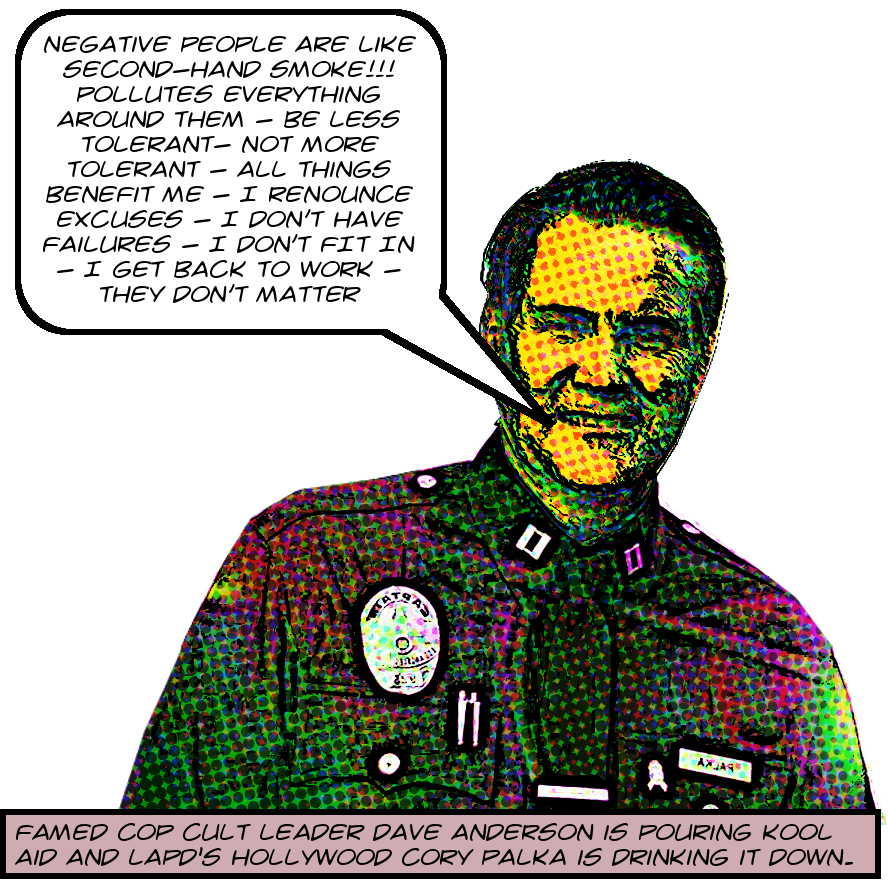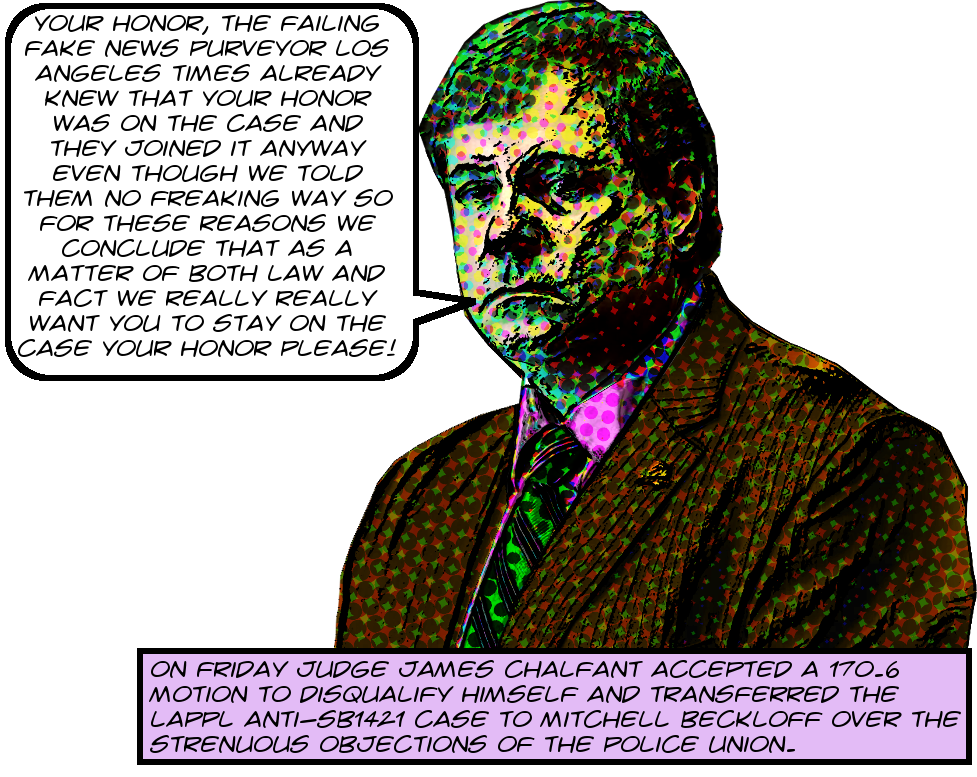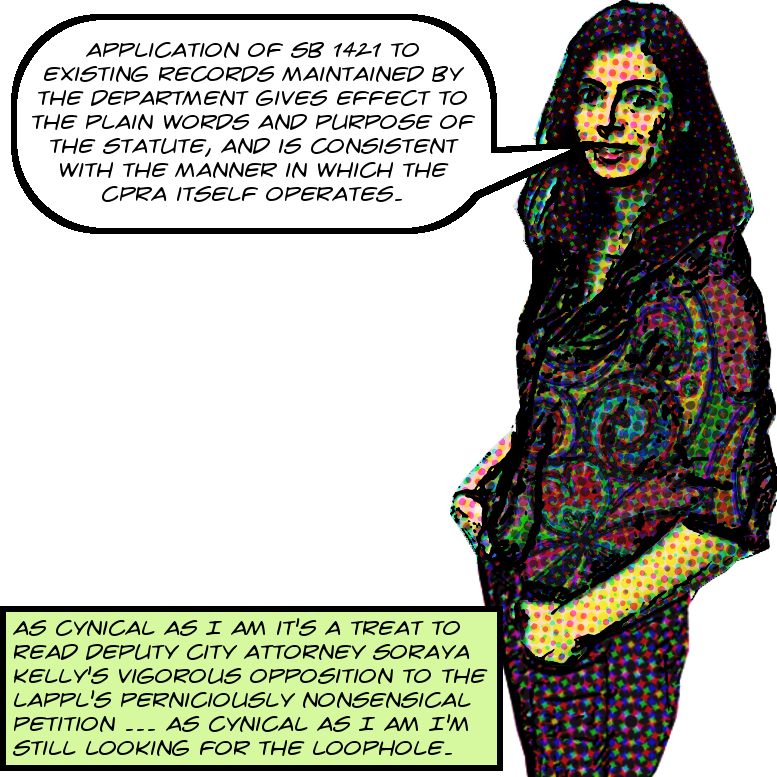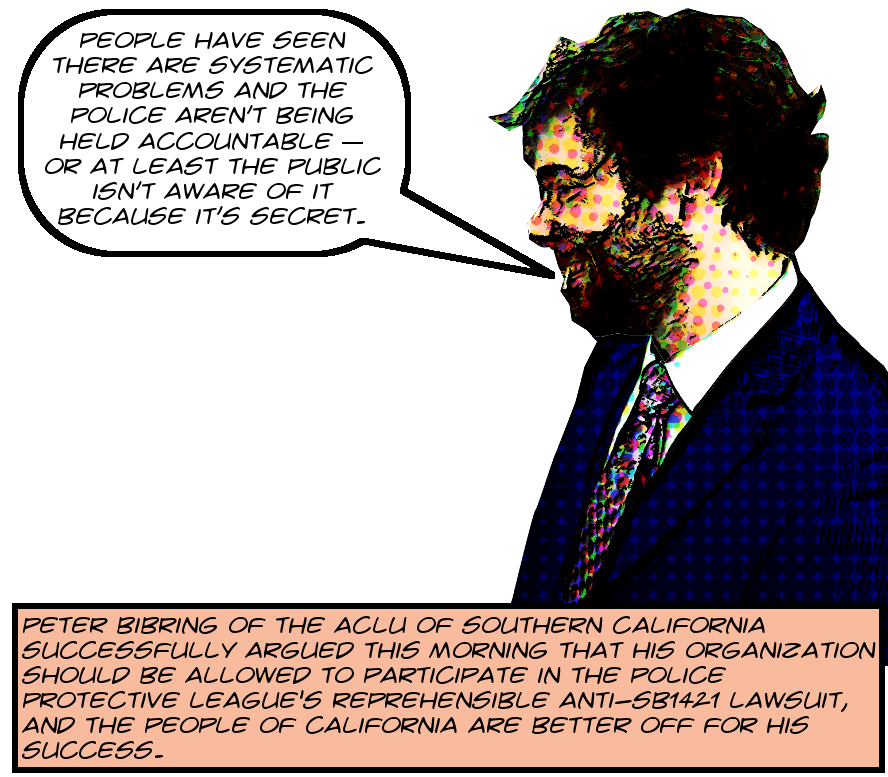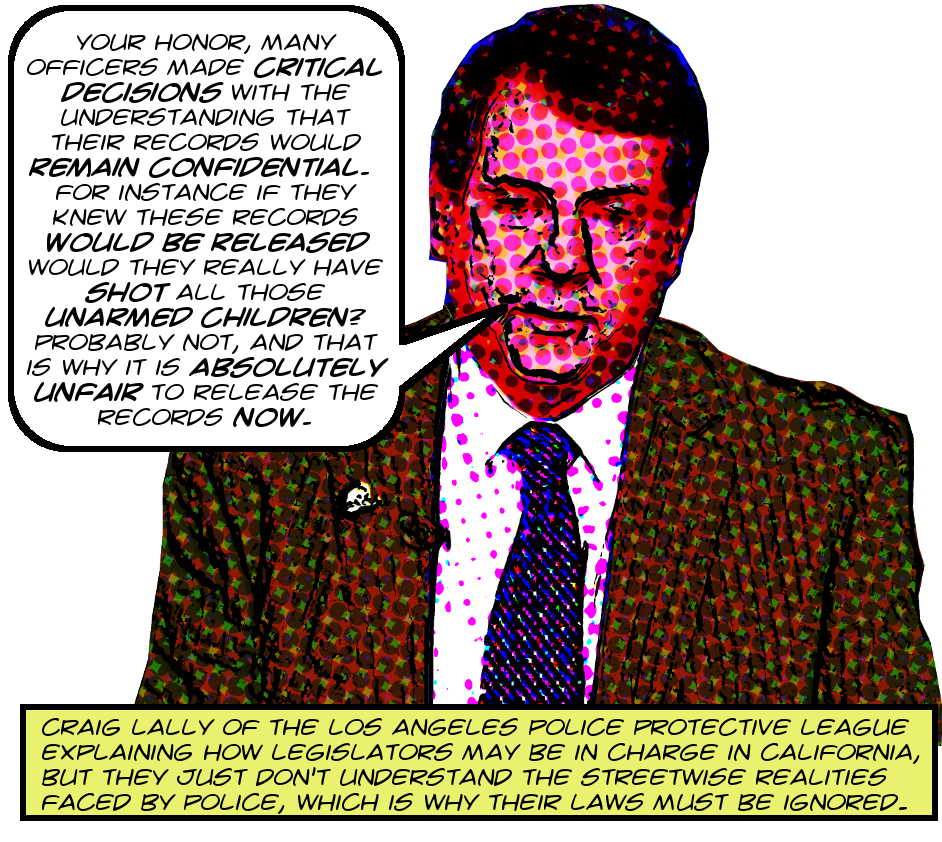LAPD, often acting through the Los Angeles Police Protective League, warps just about every aspect of municipal politics to serve its own twisted ends. They’re famous for their blackmail files on local politicians and all sorts of other intimidation tactics in order to strongarm them into supporting every aspect of the cop-first agenda. But it turns out that I had no idea of how deeply the LAPPL has insinuated itself into the terms and conditions of policing in this City until I read this October 2020 memo from LAPD sergeant Joseph Fransen to Chief Bea Girmala.
The context is a meet-and-confer process involving LAPPL and LAPD brass about when police dog bites are counted as a “use of force.” This is an official label, and its application has consequences for the officer. Per Fransen “the LAPPL views something being a use of force as de facto ‘bad'” and therefore they want it made harder to rule that a police dog bite counts as such.1 A November 6, 2020 update, part of the same memo linked to above, reveals that Girmala recommended that LAPD partially address LAPPL’s concerns.
The proposal was discussed by the Police Commission’s Use of Force Subcommittee on November 10, 2020 and again on March 9, 2021. As far as I can see it has not yet been considered by the full Commission.2 In other words, LAPPL, high-ranking LAPD officers, the Inspector General, and two members of the Police Commission have spent more than six months holding secret discussions of the rules under which police dog handlers operate.
Continue reading LAPPL and LAPD have been negotiating a revision of the department’s use of force policy as applied to police dog bites in secret at least since November 2020 — Police Commissioners are involved in the discussions via the LAPC’s Use of Force Subcommittee — which does not meet in public — and is only one of multiple secret subcommittees — none of which comply with the Brown act — used by the Commission to evade public oversight

